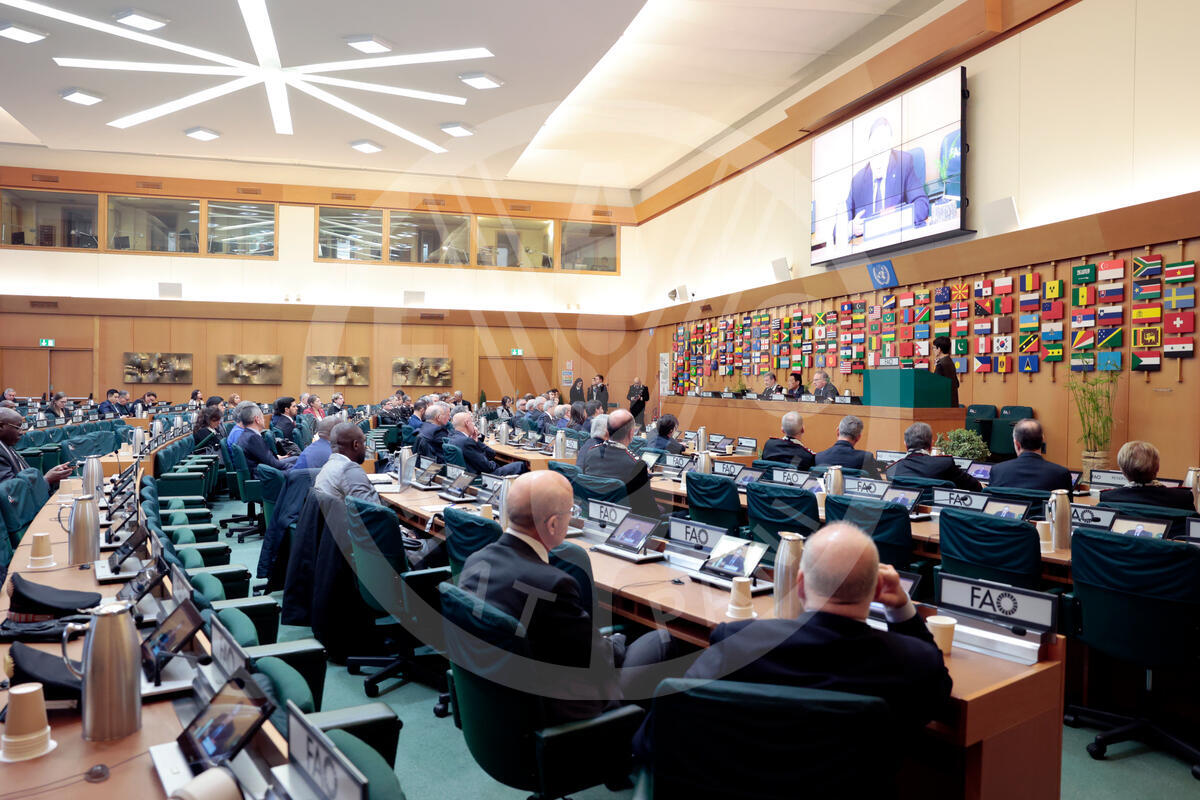
The resumed session of the sixteenth meeting of the Conference of the Parties to the Convention on Biological Diversity (COP16.2) takes place at the Food and Agriculture Organization of the United Nations (FAO) headquarters in Rome from February 25–27, 2025.
Rome: Representatives from over 150 nations have gathered in Rome for the continuation of the 16th United Nations Biodiversity Conference (COP16.2). On the eve of the conference, The Food and Agriculture Organization of the United Nations (FAO)hosted a high-level meeting at its headquarters, highlighting the necessity for agrifood systems to align with biodiversity efforts to secure a sustainable future for both humanity and the Earth. FAO is urging decisive measures to revamp agrifood systems and bolster global biodiversity objectives, on this occasion.
The event built on the momentum generated last October at COP16 in Cali, Colombia, where FAO, the Government of Colombia, and the Convention on Biological Diversity (CBD) Secretariat launched the Agri-NBSAPs Support Initiative. The Initiative aims to assist governments in integrating agrifood systems into National Biodiversity Strategies and Action Plans (NBSAPs) and their implementation.
“The initiative provides us with a collective mechanism to help governments build capacity, identify and implement strategic levers across agrifood sectors to achieve their national biodiversity targets,” explained FAO Director-General QU Dongyu while opening the event.
Qu was joined by Colombian officials María Susana Muhamad González, Minister of Environment and Sustainable Development and President of COP16, and Martha Carvajalino, Minister of Agriculture and Rural Development, as well as Astrid Schomaker, Executive Secretary of the CBD, and ministers from several countries, who reaffirmed their commitment to implementing the Kunming-Montreal Global Biodiversity Framework (KMGBF), keeping agrifood systems front and centre.
The ongoing negotiations from Cali have returned to the forefront at COP16.2, and the resumed session in Rome signifies a pivotal point for the global biodiversity agenda. This week’s crucial discussions in Rome will focus on solidifying financial mechanisms aimed at generating the approximately $200 billion annually required to put the KMGBF into action, alongside enhancing monitoring frameworks to effectively assess progress.
COP16 President Muhamad acknowledged the vital contribution of the FAO in embedding food security and agriculture within the Global Biodiversity framework. She expressed her enthusiasm for the collaboration with Colombia and the CBD through the Agri-NBSAPs Support Initiative, emphasizing the significance of this partnership and her hope for its successful realization.
Minister Carvajalino underscored the pressing need for global cooperation to harmonize agricultural practices with environmental strategies. He pointed out Colombia’s commitment to tackling common challenges and advancing this dialogue with the support of the FAO, asserting that sustainable food production is essential for eradicating hunger.
CBD Executive Secretary Schomaker emphasized that biodiversity is essential for ensuring food security and nutrition, asserting that transforming agrifood systems is key to achieving both biodiversity conservation and sustainable development. She stressed the necessity of an integrated approach that collaborates with farmers to weave biodiversity into national strategies, highlighting the wider implications for peace and climate stability.
Biodiversity plays a vital role in food production by delivering essential ecosystem services such as pollination, soil health, pest management, and climate stability. The alarming degradation of ecosystems presents serious threats, with around 3 billion people potentially affected, especially those in vulnerable communities. The decline of pollinators could severely jeopardize food security, as nearly 75 per cent of global food crops rely, at least partially, on these crucial species.
The Director-General of the FAO highlighted the necessity of implementing the KMGBF, which was adopted at COP15, to tackle these pressing issues. He pointed out that more than half of the 23 targets outlined in the Framework are directly linked to agriculture, emphasizing the importance for nations to weave agrifood systems into their National Biodiversity Strategies and Action Plans (NBSAPs). He further elaborated that biodiversity exists not only in the air but also within the soil and water, advocating for a comprehensive, three-dimensional approach to understanding biodiversity.
He cautioned that securing financial investment is essential for reaching biodiversity objectives and that incorporating agrifood systems into national biodiversity strategies can open doors to funding through international initiatives, public-private collaborations, and national budgets.
“It is critical to get the farmers on board, for them to take ownership and be part of the partnership. Without the farmers, it is only political policy without implementation,” he added.
FAO is at the forefront of assisting nations in weaving biodiversity into their agrifood systems and aligning these systems with biodiversity strategies and initiatives. This approach guarantees that policies and actions yield benefits for both biodiversity and food security. As discussions progress, FAO is dedicated to closing the divide between aspirations and real-world application, promoting collaboration across various sectors, and obtaining vital resources to safeguard biodiversity while also ensuring food security for generations to come.
“We need an integrated approach across government sectors, across Ministries, to ensure the ‘Four Betters’: better production, better nutrition, better environment, and a better life – leaving no one behind,” FAO Director-General concluded, underlining that this was “the common philosophy needed to produce staple, nutritious, healthy and functional foods – the four levels of foods.”
– global bihari bureau





